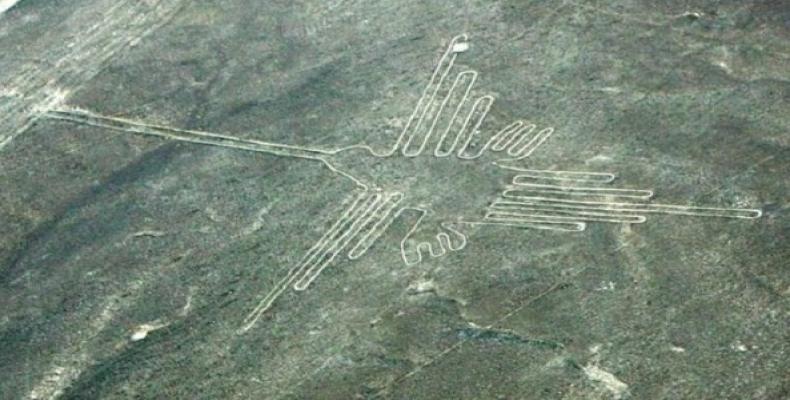Lima, November 20 (teleSUR-RHC)-- The government of Peru has allocated US$2.6 million dollars for the second phase of a project designed to protect the famous Nazca Lines from possible damage stemming from the El Niño phenomenon.
Peru and neighboring Ecuador are said to be most at risk from the weather phenomenon. El Niño causes a weakening of winds, allowing heat to accumulate. This weather shift causes flooding in some areas and droughts in others.
As a result, severe floods, outbreaks of mosquito-borne illnesses, and catastrophic crop and damage to infrastructure and heritage sites are expected.
In addition to the Nazca lines, the Peruvian government aims to protect a total of 46 geological and historical sites from potential damage. A special technical commission determined the sites that were most at risk, giving them priority.
The Nazca lines, a UNESCO World Heritage site, are ancient hieroglyphs located in Peru's Nazca desert. Some are simple stylized lines, while others are more complex representations of animals, the most recognizable being a hummingbird.
The Nazca desert normally receives a low amount of rain but the El Niño phenomenon is expected to bring greater than usual rainfall, which may cause some of the lines to wash away or be damaged.
The lines were damaged late last year after an ill-conceived stunt by the environment non-governmental organization (NGO) Greenpeace.
The group illegally entered the area where the Nazca lines are found in order to place a message purportedly in a bid to remind the 195 countries' leaders present at the 20th United Nations Climate Change Summit (COP 20) in Lima of the importance of addressing climate change agreements.
The Peruvian Ministry of Culture filed a lawsuit against Greenpeace as a result.


